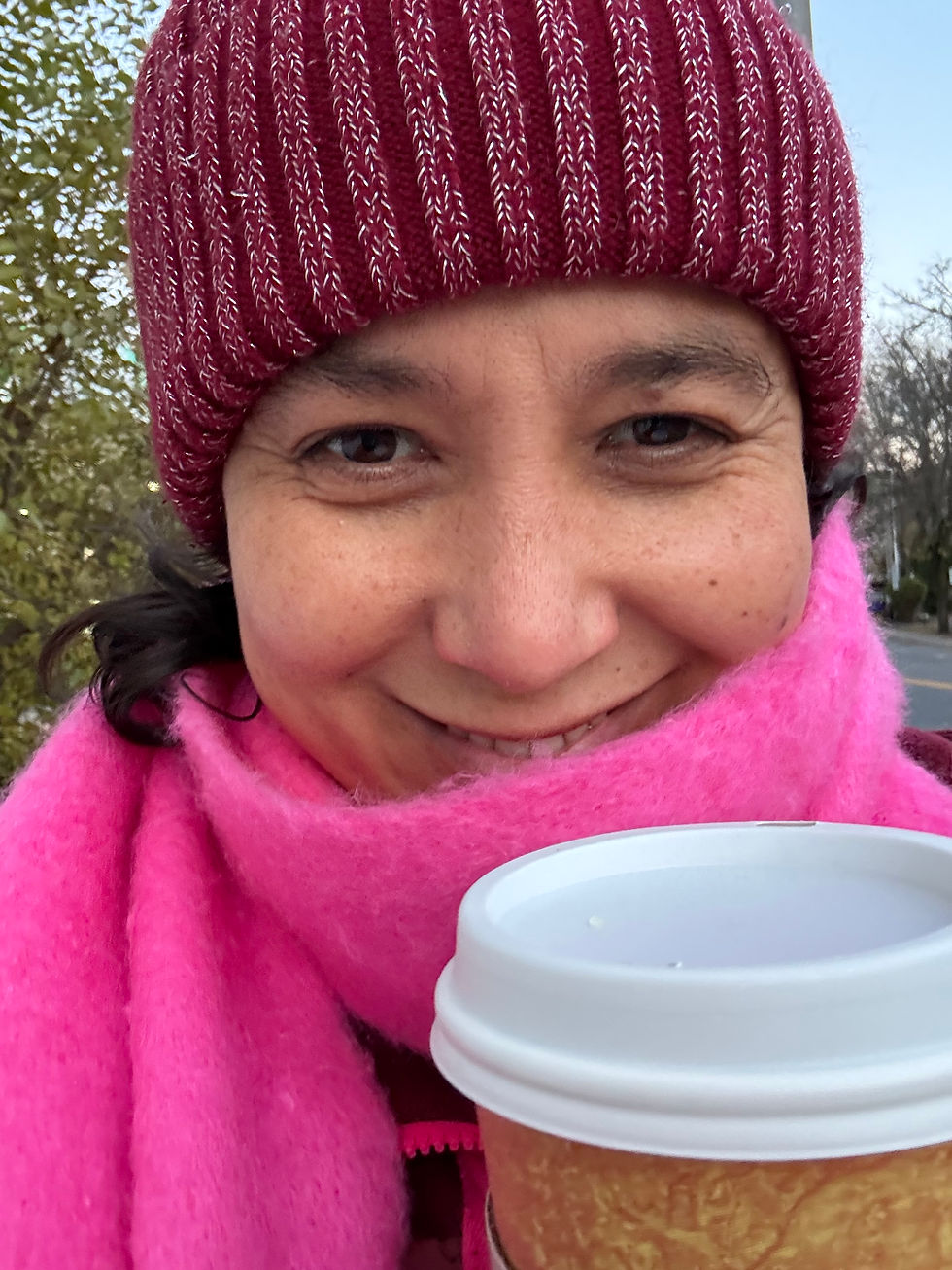The Space Between Us
- Raditia

- May 8, 2023
- 2 min read
Updated: Aug 12, 2025
Wherever we go, with whomever we are, and even within ourselves. There is always a space between us and something or someone else. I call it the undefinable space. It's the space we don't know what will happen once we step in.

The other day, I started to realize that often when we come in contact with someone or something, we are protecting ourselves by showing up as predictable as possible. We plan our conversations, our tasks, and even our whole days. There are moments when what we anticipated would happen didn't happen, and we move into a sense of the unknown. Sometimes it shows up with discomfort when our plans don't turn out as smoothly as expected.
There are certain ways we ensure that getting in touch with the opposite side, the person or the thing, will keep us in a safe space. As I was exploring this idea further and especially the space between us, I noticed that when we operate in that way, in the protected/safe way, we are withholding the opportunity of expansion, evolution, and growth within ourselves and especially with the person or even thing in front of us. We only work with what we know and how we are willing to move through. I started to ask myself, what are we afraid of? Why are we not allowing discomfort and the unknown to be present?
As I am reading the Myth of Normal by Gabor Mate with Daniel Mate, I find the answers as he points out that "uncertainty, conflict, lack of control, and lack of information are considered the most stressful stimuli and strongly activates HPA axis," (276) which relates to a physical reason. I believe a subconscious decision on why we avoid such situations. And he later on also adds, "In an atomized, materialistic culture, people are induced to take everything personally, to see their own mental and physical distress as misfortunes or even failures belonging to them alone." (277)
Connecting these two dots, I recognize that it requires more presence and awareness when we communicate with one another. It's so easy for us to stay in our own stories, how we perceive things, and what we want to get out of it. And when both parties remain in their own space, the tendency to get into an argument or disagreement is much greater than when we practice letting go of what we expect and want to get out of this and move into curiosity and discovery with the other person. We won't be able to be removed entirely from our past and thoughts, though we can be aware of them without making them lead the conversation.
The most excellent chance we get by moving into that space between us with grace, openness, and primarily with curiosity, we allow our stories to take new shape, and we open up to possibilities that weren't possible when we stayed in a safe space. Take a chance and let yourself be guided by the space between us.







Comments